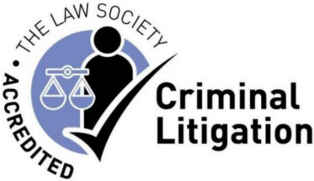Solicitors Specialising in acting for Small and Medium-sized Businesses
Running your own business is sure to present you with many unexpected legal challenges; here are 9 practical legal tips help to guide you through the potential legal minefield.
To find out more about how our business law team can help you and your small business, simply call us now on FREEPHONE 0800 1404544 or Salisbury 01722 422300. Initial legal advice on the phone is always FREE.
1. Make sure you get an experienced business law solicitor
There are many different types of law and solicitors who specialise in certain areas, so finding one can be a daunting task. Recommendations from other companies are a good way to start. Also check out local business or commercial solicitors on Google. Have a good look at their website –it is likely to give you a good idea of how modern and business friendly their solicitors really are.
Don’t be afraid to ask a solicitor for references or testimonials from any other companies it has worked with, and follow these up.
Click here to read more about how our Commercial Solicitors can help you
2. It pays to get advice early on
The amount you will pay for advice at an early stage can be substantially lower than paying for problems that will arise in the long-term. Ask for an estimate of the cost if you seek a lawyer’s advice. Some solicitors offer fixed fee for jobs like forming a company
3. Spell out your terms and conditions
Make sure that your terms and conditions are both simple and clear and that all your customers are aware of your them, otherwise you will risk being paid when they feel like it, and sometimes not at all, if they go bust. You will also need to ensure that your customers agree to these terms and that they are aware of them each time an order is placed. If you have any doubts at all as to what should be in your terms and conditions, make sure you ask your business law solicitor who will be happy to draft them for you.
Click here to read more about making sure that you have the right Terms and Conditions
4. Ensure that any agreement is in writing
Make sure that all your business contracts and agreements are confirmed in writing. If you strike an agreement verbally, get a confirmation in writing as anything that is agreed verbally is often difficult, if not impossible to put into effect, if problems arise. A written record will also prevent people from trying to change their minds or giving you a different story at a later stage
Click here to find out more about whether an unsigned contract can be enforced in the UK?
5. Make sure an experienced property solicitor checks any commercial lease you sign
Unless you’re working from home, then you’re probably going to be renting your business premises. Commercial leases are often long and complex, and there are often more obligations imposed on a commercial tenant than a residential tenant. For example, most commercial tenancies are on a “full and repairing lease” basis. This means that you will be fully responsible for any ongoing repairs and maintenance – and you must make sure that at the end of the lease, you hand over the property in at least a good a condition as it was when you took it on. That’s why you need an experienced commercial property lawyer on your team.
Click here to find out more about commercial leases
6. Don’t take risks with health and safety
By law, all businesses need to assess potential risks in the workplace – health and safety fines can be hefty and can cripple your business. Only firms with fewer than five people are not required to come up with a written statement. Your statement should address the following issues: what to do in the event of a fire and the procedure for reporting and dealing with accidents.
7. Avoid expensive mistakes – protect your intellectual property
Intellectual property can be something as simple as your business name, your business logo or the content of your website. And it’s essential that you retain control of those basics. and if you’re launching a new business, then it’s even more important to get those right. So do your due diligence and make sure you’re not using someone else’s business details – even if it is by accident. Having to rename or relaunch your product will not enhance your reputation
But if you have created a new product or service, then intellectual property becomes much, much more important. If you do decide you need some intellectual property advice – this is a particular complex area and is one where you definitely need a specialist.
8. Keep up to date with changes in the law
Employment law can be an absolute minefield for the uninitiated is one area that is constantly changing so it’s important that you keep up-to-date. If not make sure you have a specialist employment solicitors who will do so for you –many forward thinking solicitors these days provide very useful commercial e-mail newsletters [ like ours] – make sure you sign up to one . Don’t forget that every employer must provide all of their employees with an employment contract, clearly laying down certain details, and it can be in your interests to include policies, in a staff handbook perhaps.
9. Keep employment contracts clear and simple
The way you word a contract of employment is also important – it needs to be as clear and easy to understand as possible. Keep the sentences short and to the point – no employer is expected to be an expert in employment law. Don’t take chances – if in doubt get good advice from specialist employment solicitors.
10. Take employment law advice and follow procedure
If you do take on staff and if you get to the stage where you have difficulties these with them, make sure that you take specialist employment lawyers on. Failing to fully the correct procedure can prove very costly.
Click here to read more about how our specialist employment law solicitors can help you
Need a business law advice you can rely on? Contact us today
The business law team here at Bonallack & Bishop have the experience and know-how needed to help your small business with all aspects of company and commercial law. And we offer FREE initial phone advice
So for expert legal advice,
- Call us on FREEPHONE 0800 1404544 or Salisbury 01722 422300.
- Get in touch by filling out our contact form below.













